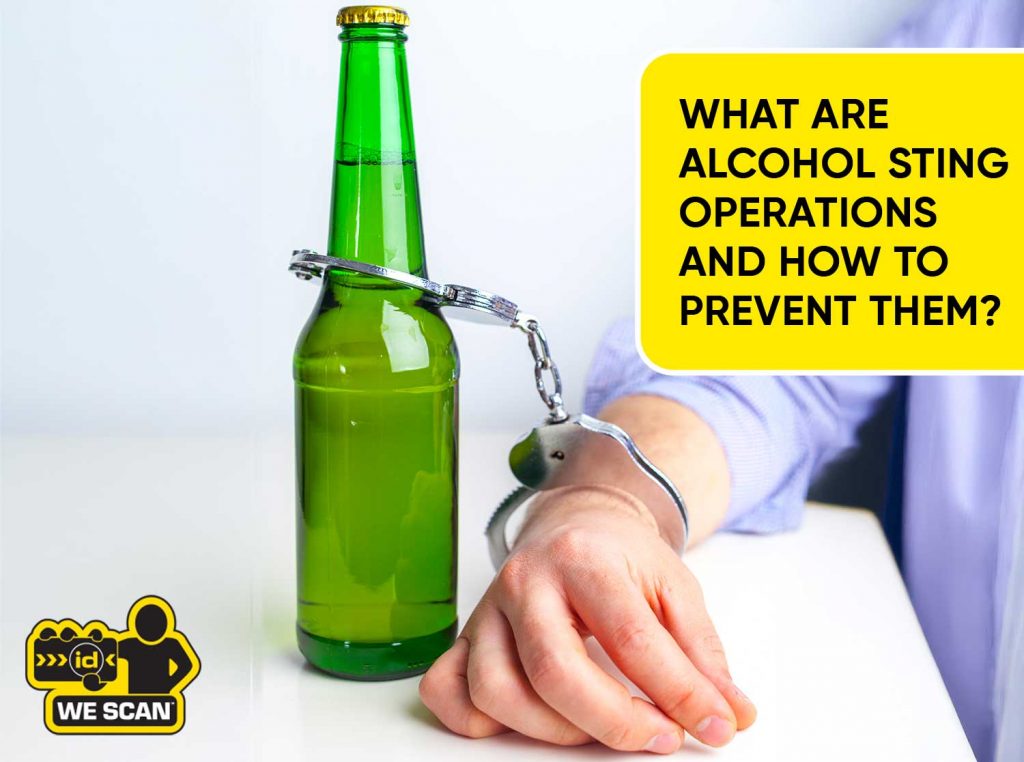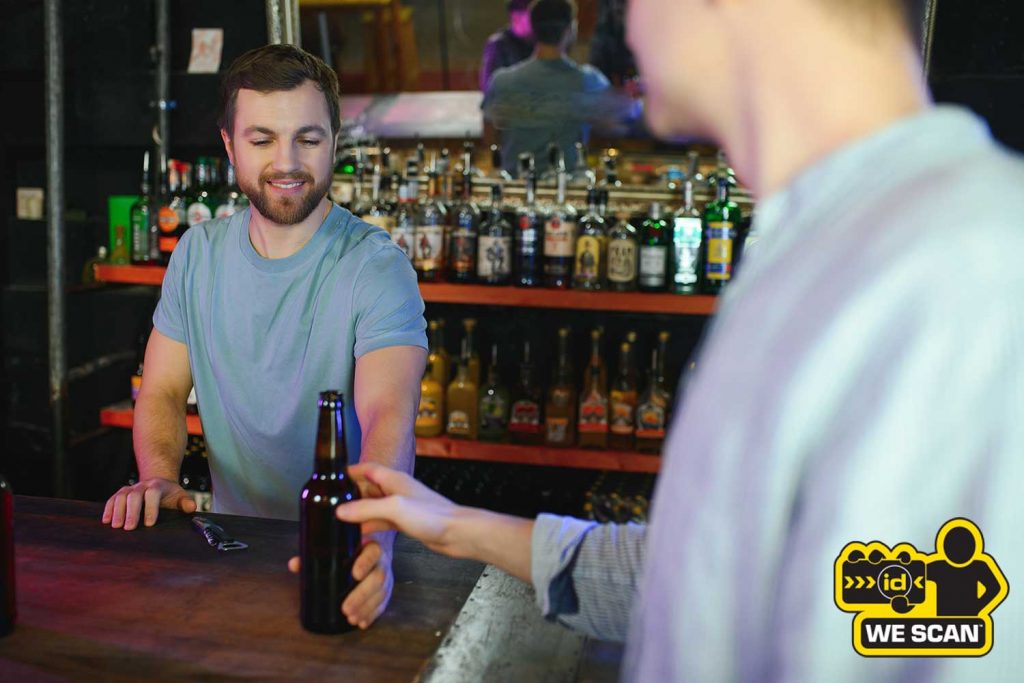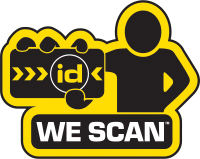Alcohol sting operations are commonly used by law enforcement agencies to ensure businesses comply with liquor laws. These operations are confidential and undercover, typically involving minors or undercover agents who attempt to purchase alcohol from bars, restaurants, liquor stores, or other establishments. If a business sells alcohol to an underage customer or otherwise violates alcohol laws, it may face consequences such as fines, penalties, and even liquor license suspension.
Compliance checks play a crucial role in preventing illegal alcohol sales and promoting responsible service. Conducted by various law enforcement agencies, these regulatory inspections ensure businesses adhere to state and federal liquor laws. Failing a compliance check can lead to severe legal and financial consequences, including damage to a business’s reputation and costly fees.

For bar owners, liquor store managers, and hospitality professionals, these compliance measures are about more than just avoiding fines—they provide a roadmap for running a responsible and legally compliant business. Understanding how alcohol sting operations work and adopting compliance measures can help businesses protect their licenses, avoid legal trouble, and create a safer drinking environment.
What is an Alcohol Sting Operation?

An alcohol sting operation is a law enforcement tactic used to test whether businesses comply with liquor laws, particularly regarding the sale of alcohol to minors. These operations aim to catch establishments that serve underage customers or violate other alcohol-related regulations.
How Law Enforcement Conducts Alcohol Stings
Alcohol sting operations are typically carried out by state liquor control boards, local law enforcement, or federal agencies such as the Alcohol and Tobacco Tax and Trade Bureau (TTB). These agencies collaborate to ensure businesses follow state and federal alcohol regulations.
One of the most common methods used in these operations involves underage decoys—individuals legally below the drinking age who attempt to purchase alcohol under the supervision of law enforcement. These decoys may work independently under surveillance or be accompanied by plainclothes officers. The goal is to assess whether employees properly verify IDs before making a sale.
The process generally follows these steps:
- Selection of a Target Business – Law enforcement identifies establishments for compliance testing based on random selection, complaints, or previous violations.
- Use of an Underage Decoy – A minor, under the supervision of law enforcement, enters the establishment and attempts to purchase alcohol.
- Observation and Documentation – Officers monitor the transaction from inside or outside the premises. Some stings use recording equipment to capture the exchange.
- Enforcement Action – If the business sells alcohol to the decoy without verifying their age, officers may issue fines, citations, or warnings on the spot. In some cases, the violation may lead to legal proceedings, license suspension, or mandatory employee training programs.
Protect Your Business with One Comprehensive Solution
Whether you operate a bar, restaurant, retail shop, venue, or private club—WE SCAN helps you automate compliance, prevent over-serving and underage sales, and meet your regulatory obligations with confidence.
🔹 Centralized Responsible Service Program
🔹 Seamless Age Verification Across Devices
🔹 Private Club Membership & Compliance Automation
🔹 Real-Time Policy Enforcement & Risk Monitoring
The Role of Compliance Checks
Alcohol compliance checks are a key component of sting operations. These proactive inspections, conducted by regulatory agencies, evaluate whether businesses adhere to alcohol laws. Unlike sting operations, which focus on enforcement, compliance checks often serve as an educational tool, helping businesses identify weaknesses in their alcohol service policies.
Failing a compliance check can have serious consequences, including fines, liquor license revocation, and legal liability. Understanding how these checks are conducted and taking proactive steps to prevent violations is essential for businesses to maintain a strong reputation and legal standing.
What Are Compliance Checks?
Compliance checks are regulatory inspections conducted by law enforcement agencies and liquor control boards to ensure businesses follow alcohol laws. These checks focus on preventing alcohol sales to minors and intoxicated individuals, ensuring establishments operate within legal guidelines. Compliance checks help reinforce responsible alcohol service while protecting public safety.
Who Conducts Compliance Checks?
Various agencies carry out compliance checks, including:
- State Alcoholic Beverage Commissions – Oversee licensing and enforcement of liquor laws at the state level.
- Local Law Enforcement – Conduct compliance checks as part of community safety initiatives.
- Federal Agencies – The Alcohol and Tobacco Tax and Trade Bureau (TTB) and other federal organizations may be involved in large-scale enforcement efforts.
These agencies may work independently or collaborate to ensure businesses comply with alcohol regulations.
Take Control of Your Responsible Service Program
Prevent underage sales, over-consumption, and policy violations—right at your point of sale. WE SCAN helps you automate compliance, reduce liability, and enforce your responsible service standards company-wide.
🔹 Seamless POS Integration
🔹 Real-Time Age Verification & Alerts
🔹 Configurable Policies by Store, Region, or Brand
🔹 Protect Your Business, Employees, and Customers
Compliance Checks vs Sting Operations
| Compliance Checks | Sting Operations |
|---|---|
| Evaluate if a business is following alcohol laws. | Catch businesses violating alcohol laws in real-time. |
| Routine inspections or audits of alcohol service policies. | Undercover operations with decoys attempting to purchase alcohol. |
| Education, training recommendations, or citations. | Fines, legal penalties, or liquor license suspensions. |
While compliance checks may result in penalties for non-compliance, they often serve as an educational tool, helping businesses address issues before they escalate into serious violations.
Certified Alcohol Compliance Programs
Many jurisdictions offer certified alcohol compliance programs, which provide businesses with structured training and certification for responsible alcohol service. These programs, such as TABC (Texas Alcoholic Beverage Commission) certification, help employees understand:
- Proper age verification techniques.
- The legal consequences of selling alcohol to minors.
- How to handle intoxicated patrons responsibly.
Businesses that participate in certified compliance programs demonstrate a commitment to legal and responsible alcohol sales, reducing liability risks and potential penalties. Some states even offer reduced fines for first-time offenses if an establishment has undergone certified training.
Why Compliance Checks and Sting Operations Matter?

Selling alcohol to minors is a serious offense with far-reaching consequences. Compliance checks and sting operations help enforce liquor laws, ensuring that establishments remain responsible and accountable when serving alcohol.
Automate Age Verification & Safeguard Your Business
Say goodbye to manual checks and subjective decisions. With WE SCAN, your responsible sales program becomes automated, reliable, and fully compliant—protecting your customers' data and your business from costly risks.
🔹 Prevent Underage Sales & ID Sharing
🔹 Maintain Full Compliance With State Regulations
🔹 Integrate With Your Existing POS
🔹 Protect Customer Privacy & Your Business Reputation
The Impact of Selling Alcohol to Minors
Underage drinking is a significant public health concern, contributing to:
- Increased accident risks
Minors who consume alcohol are more likely to be involved in drunk-driving incidents. - Substance abuse issues
Early exposure to alcohol can lead to long-term dependency. - Unsafe behaviors
Alcohol impairs judgment, increasing the likelihood of risky behaviors such as violence, injuries, and alcohol poisoning.
By preventing the illegal sale of alcohol to minors, compliance checks and sting operations help reduce these risks and promote responsible drinking practices.
Consequences of Failing an Alcohol Compliance Check
Failing an alcohol compliance check can have serious consequences for a business, both legally and financially. It’s not just about paying a fine—violations can lead to long-term damage, affecting operations, reputation, and even the ability to continue selling alcohol.
What Happens When a Business Fails a Compliance Check?
When a business fails an alcohol compliance check—whether by selling to a minor or violating other liquor laws—law enforcement or liquor control agencies take immediate action. The consequences depend on the severity of the violation, whether it’s a first-time offense or a repeat occurrence, and local or state laws.
| Offense | Potential Consequences |
|---|---|
| First Offense | Warning, fine ($500–$2,500), mandatory training |
| Second Offense | Higher fine ($2,500–$5,000), liquor license suspension |
| Third Offense | Liquor license revocation, possible criminal charges |
| Repeat Violations | Permanent ban on alcohol sales, legal liability |
Many states have zero-tolerance policies, meaning even a first-time violation can result in a liquor license suspension or a substantial fine.
Protect Your Business with WE SCAN Solutions
At WE SCAN, we help businesses remain compliant and protected during alcohol sting operations. Our solutions make age verification simple, fast, and accurate.
- Our Responsible Service Program provides staff with the training and tools needed to comply with alcohol service laws.
- Automated Age Verification systems instantly scan and validate IDs, reducing human error and preventing underage sales.
- Private Club Management solutions help businesses maintain proper records and meet regulatory requirements.
Partner with us to safeguard your license, avoid costly fines, and create a safer environment for your customers.
Streamline Private Club Compliance — Go 100% Paperless
Eliminate paperwork, reduce labor costs, and simplify state compliance requirements for your private club. WE SCAN automates everything from applications to rosters, so you can focus on creating a premium member experience.
🔹 Instantly Verify Memberships Using Driver Licenses
🔹 Generate Meeting Minutes & Rosters With One Click
🔹 Flag VIPs or Banned Guests Automatically
🔹 Secure, Compliant, and Fully Web-Based Solution
FAQs
What are alcohol compliance checks, and how do they work?
Alcohol compliance checks are inspections conducted by law enforcement to ensure businesses follow liquor laws. Underage decoys attempt to purchase alcohol, testing whether employees properly check IDs and refuse illegal sales.
What is an alcohol sting operation, and how is it conducted?
An alcohol sting operation is a law enforcement tactic where underage decoys attempt to buy alcohol. If a sale occurs, the business faces penalties. These stings help enforce compliance with age restrictions and prevent underage drinking.
Why are alcohol compliance checks and sting operations important?
These operations prevent alcohol sales to minors, ensuring businesses follow the law. They also promote public safety, reduce alcohol-related accidents, and protect establishments from legal and financial consequences.
What happens if a business fails an alcohol compliance check or sting operation?
Failing can result in fines, liquor license suspension, mandatory training, or even permanent revocation. Repeated violations may lead to criminal charges or loss of business credibility.
How can businesses prevent failing an alcohol sting operation?
Businesses should enforce strict ID checks, train employees in responsible alcohol service, use ID scanners, and conduct internal compliance audits to ensure adherence to liquor laws.

